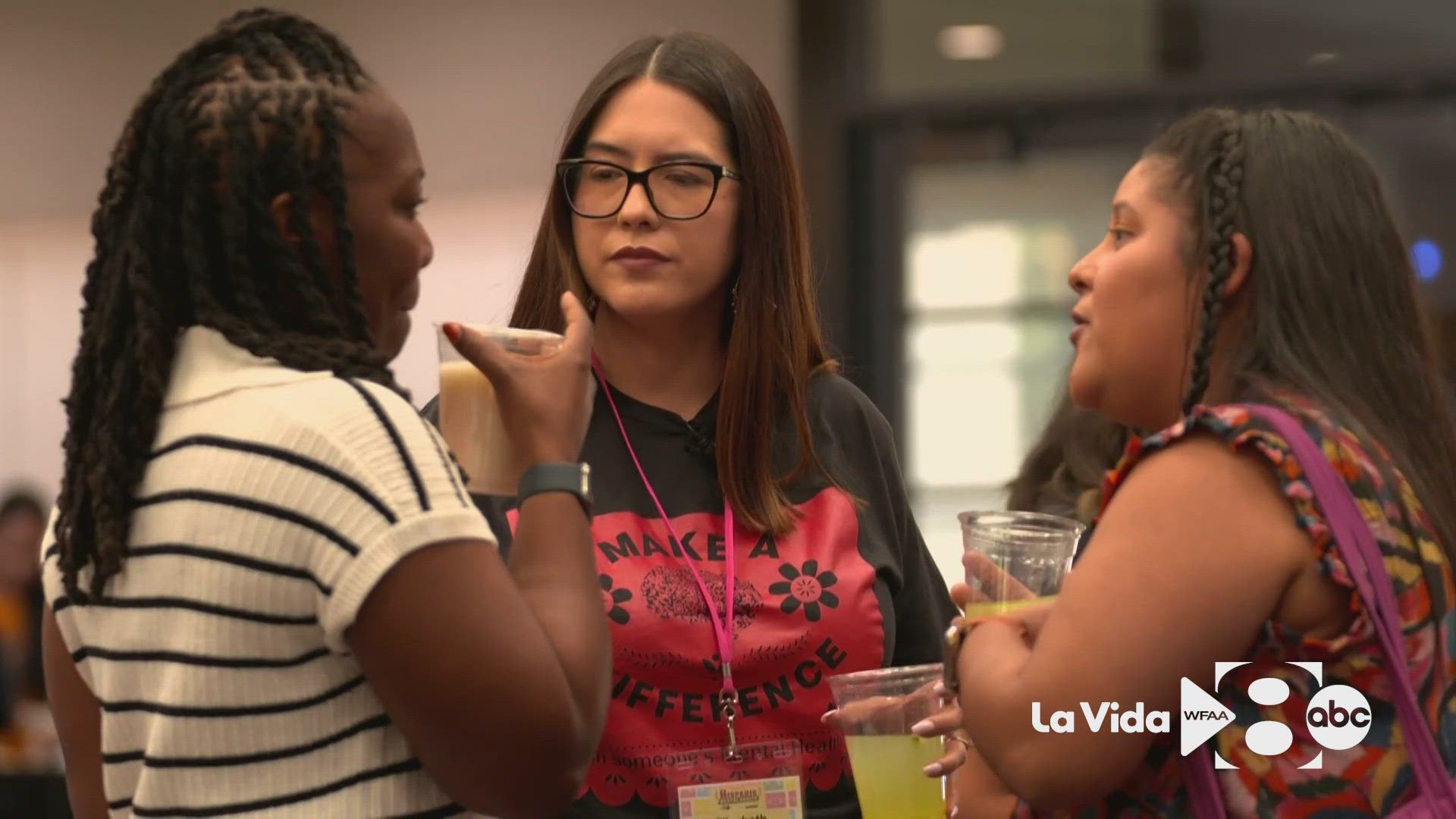DALLAS — It was one of many crowded classrooms filled with mental health care professionals who were eager to expand their knowledge.
They all had something in common: they were Hispanic, bilingual therapists and counselors attending the Cannanta Foundation’s 2024 Hispanic Mental Health Conference.
The conference, held at Dallas College Mountain View West Campus, was a chance for mental health professionals to connect and learn new therapy tools aimed at helping their patients heal.
Crystal Gonzalez, a life coach and licensed master social worker with the Cannenta Foundation said events like the weekend conference are necessary to break the ongoing stigma around mental health in the Hispanic community.
“The beauty in it all is we’re helping people who did not know about therapy,” Gonzalez said. "They grew up thinking that’s for people that are crazy.”
Life coach and marriage counselor Elizabeth Jurado grew up in a household where mental health challenges weren’t discussed or addressed.
It led to years of pain following her parent’s separation.
“Stigma is so real, and there’s always the saying: ‘You don’t wash your dirty laundry in somebody else’s house.’ That was the expectation. You keep it in.”
It wasn’t until college that her journey toward healing began. Jurado stumbled upon free therapy sessions provided on campus.
“That was the first time where mental health opened in my world," Jurado said. “It just came out. Tears, brokenness, a feeling of being lost even though I was pursuing my education and representing my family by being the first in my family to go to college... and I felt that I was just broken.”
The challenge of being a first-generation college student is among various issues Jurado’s patients grapple with. Immigration, generational trauma, generational living, fleeing violence and family separation are common concerns Jurado helps her Hispanic clients work through.
That’s only the beginning.
The community also faces disparities when it comes to access to mental health resources.
According to the National Alliance on Mental Illness, each year, only 35% of Hispanic or Latino/a adults with mental illness receive treatment compared to the U.S. average of 46%. NAMI said the gap is due to barriers to accessing care.
Gabriela Garcia, a licensed therapist in Fort Worth has spent more than two decades trying to increase access to mental health care among the Hispanic community. Twenty years ago, her challenge was the stigma that kept families away from seeking help. There weren’t enough bilingual therapists to assist Spanish-speaking families. Now, the ongoing challenge she sees is a lack of access to care.
The TCU graduate sought out to change that when she founded the non-profit Dream Big in the Northside community where she grew up.
“I remember in high school I had a teacher who said ‘People like you grow up, are successful, and leave your communities. So how are your communities going to get better?’ That always stuck with me, and that’s why I wanted to do it here in my own backyard,” Garcia said.
She’s a full-time licensed therapist through her practice PSP Counseling. Additionally, she and a team of 15 therapists in her office provide therapy for uninsured families in need at no cost.
“Our job is to be their therapist, but we also play the role of a case manager,” Garcia said. “People will come to us and talk about how they don’t have food resources. So, sometimes we have to start with food resources and some resources to pay their bills... because if they’re not having those basic needs met, things aren’t going to get better for them or for their families."
Despite ongoing challenges, Garcia is optimistic. She finds that now more than ever, Hispanic families, especially the younger generation, are becoming more open to discussing mental health and seeking help.
"It’s a long time coming,” Garcia said. “It gives me hope for the future.”

